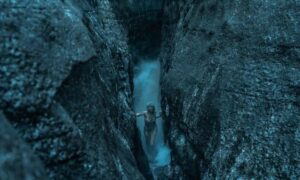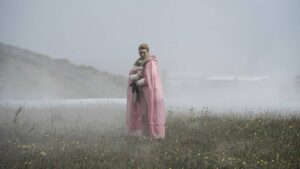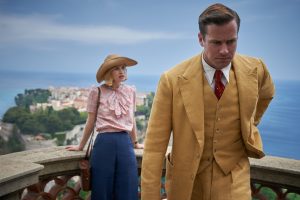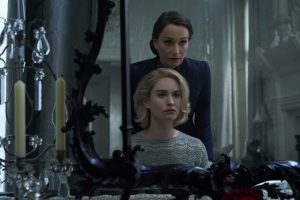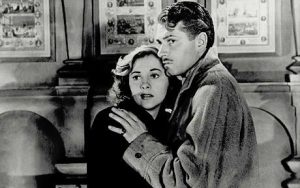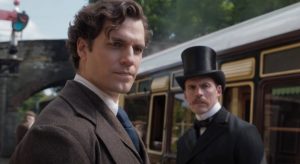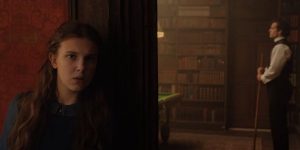Black Widow’s story has always been one of regret: both in-universe and on a meta level, because all I felt after watching Black Widow fling herself off a cliff in Avengers: Endgame for the sake of the Soul Stone was regret that this amazing character, one whose incredible empowering backstory and dark potential had only ever been touched on in passing throughout seven Marvel films, was dead and gone before she got the chance to take center stage in a solo film of her own. Black Widow’s self-sacrifice, if it had to happen at all, should have been a triumphant moment. Instead, it plays out like numb resignation to a fate that might have felt more earned if the films had actually given her a consistent character arc.

And now, two years after Natasha Romanoff (Scarlett Johansson) gave her life in service of the Avengers and received a moment’s worth of mourning from the coworkers who had the audacity to call themselves her only family, we finally have a Black Widow prequel – a kind of consolation prize for sticking with the character even as one director after another, from Favreau to Whedon to the Russo Brothers, reduced her to hypersexualized eye-candy for the male gaze. But unfortunately, Black Widow doesn’t help to make Natasha’s death more bearable or more understandable in hindsight: if anything, in trying to right one of the MCU’s greatest wrongs, it introduces elements that seem to contradict Natasha’s motivation for killing herself in Endgame (which is fine by me), yet does nothing to offer a convincing counterargument for why she’s no longer around to continue her own story, all while halfheartedly rushing to fling together explanations for the mysteries she left in her wake; explanations that are underwhelming at best.
Black Widow‘s screenwriter Eric Pearson recently revealed that the first draft of the film’s script was completed in just eleven days…and by the end of the movie when things start to come irreparably unglued, it shows. I’ll be honest, the first and second acts are mostly quite good, and achieve a perfect balance between strong character development and the kind of visceral action we expect from a movie about elite assassins: we get to learn more about Natasha’s childhood (with Ever Anderson playing a young, blue-haired Natasha), and the film plays with some potentially intriguing concepts and themes there, but when the film jumps back to the present (well, 2016, so nearer the present at any rate), it deftly ratchets up the tension by explaining that while Natasha worked under the aegis of the Avengers, her enemies in the Red Room feared that going after her would expose their position – but now, with the Avengers broken up in a post-Civil War world and Natasha on the run, she’s got no protection.
There’s a weird and unnecessary MacGuffin in the form of a mind-control device, and a general lack of direction at points, but all of this stuff is genuinely entertaining – and the first act provides a strong jumping-off point for what could have been a more grounded, intrigue-heavy, mind-bending psychological thriller like the one promised in Black Widow‘s dark and disturbing opening credits sequence. Scarlett Johansson does some excellent work on her own, imbuing her performance as Natasha with the kind of dignity, respect, and disregard for the male gaze that one can sense is freeing for her: and when Yelena Belova (Florence Pugh) enters the picture, the two women share an electric connection that carries the film through some of its weaker patches. Pugh is a revelation in this role, and one of the only upsides I can see for Black Widow taking as long to make as it did is that Pugh arrived on the scene at just the right moment to embody this character with equal parts humor and heart.
During the second act, we’re also introduced to Natasha and Yelena’s adoptive parents, Alexei Shostakov (David Harbour) and Melina Vostokoff (Rachel Weisz): the Soviet Union’s first and only Super-Soldier, and the Red Room program’s most ingenious and terrifying chemist, respectively. Neither character is actually all that important to the story, but I was surprisingly invested in their subplots, and impressed by the level of detail that Marvel put into their backstories and personalities. I had been worried about Harbour, whose “Red Guardian” was mostly used as a punchline in the marketing, but I’m pleased to report that many of his cringiest line-readings in the trailers appear to have been alternate takes, and even the controversial joke where Melina tells him that he got fat is followed up in the movie itself by a far more effective line where she comments that his body looks good.

But the vivid characterizations of Natasha and her found family inadvertently highlight one of the film’s glaring errors – the blank slate that is its villain, Taskmaster. Going into the movie, I felt certain Taskmaster’s unique and formidable ability to mirror their opponent’s movements and fighting techniques would be crucial to the plot. It’s not. We’ve already seen most of Taskmaster’s fight scenes, and all but one or two of their surprise attacks (the Black Panther-style retractable claws, for example), in the trailers. But beyond that, there’s really nothing to this character except a twist that is meant to hit the audience in the feels – except it doesn’t, because we literally don’t know Taskmaster from a hole in the wall. You never told me who I was supposed to think they were in the first place, so finding out who they really are means nothing.
As you can probably guess, hardcore Taskmaster fans are going to be let down – because this version of the character has virtually no relation to the one from the comics, which is actually a problem with a bunch of characters in Black Widow. If Melina Vostokoff is supposed to be anything like the Melina Vostokoff who goes by the alias of “Iron Maiden” in the comics, then there’s really nothing to indicate that beyond what looks like a metal face-mask on a shelf in her armory – which she never picks up, much less wears. Yelena never obtains her own iconic face-mask, which in the comics is modeled after a spider’s with a bunch of glowing eyes. And most egregiously, the character of Ursa Major (Olivier Richters), a giant humanoid Soviet bear who we’d all been excited to see, is literally just a tall hairy guy. These all feel like disappointing callbacks to the days when Marvel was afraid of its source material’s most outlandish aspects.
Blasts from the past aren’t always unwelcome, however. Black Widow‘s fight scenes – in the first two acts, mind you – borrow heavily from Captain America: The Winter Soldier, still the MCU’s best action movie, although they feel less inventive and a bit less visceral, perhaps because of a certain plot device that feels purposefully contrived to prevent characters from dying. But director Cate Shortland gave us what could be my favorite shot of Natasha Romanoff in any of her Marvel appearances, as the heroine, clad in her all-white uniform, suspends from a helicopter during a Siberian gulag ambush and soars ahead of an avalanche like some kind of avenging angel.

But unfortunately, Shortland makes no effort to try and save a third act that’s written with about as much finesse as the Incredible Hulk rampaging through New York. Any waning hope for a redemptive final action sequence is crushed when the movie suddenly disintegrates into a sprawling CGI showdown that feels completely inauthentic to Natasha’s character and devoid of any real narrative purpose. Something needed to explode, I guess, so it might as well be an entire flying fortress so that we can watch a descending battle through the falling rubble that’s over as abruptly as it begins, giving the audience no time to enjoy what could at least have been a cool set-piece if not an emotionally satisfying conclusion to a story that feels like it’s been mangled to fit the old Marvel Movie formula.
It’s incredible that Black Widow was originally intended to kick off Marvel’s Phase Four instead of the more zany, imaginative WandaVision. Although I once worried that the rearranged release calendar would disrupt all of Marvel’s carefully-laid plans, I have to admit Kevin Feige made the right decision by giving us a taste of what’s really in store for the MCU before showing us…this. It’s not that Black Widow isn’t good, because to be honest it probably still lands on the top half of my MCU rankings regardless of its faults, but it’s more of what we’re used to from Marvel: the sloppy CGI third act battles, the in-name-only cameos from fan-favorite comic characters, the wasted villains. I can only hope that the success of Marvel’s Disney+ shows convinces the studio to apply the storytelling techniques that make their shows so popular to their future films, because I feel strongly that there’s a sweet spot somewhere between the creativity of the shows and the bigger budgets of the films that Marvel just hasn’t found yet.
And so we circle back around to the same place where we started: that inescapable feeling of regret. I’m not unhappy I watched Black Widow, but I am sad that Natasha Romanoff’s story doesn’t get to end on the resounding high note I and many others think she deserved. Because this is it. The film doesn’t provide an out for her to cheat death and return somewhere down the line – although the Multiverse could conceivably bring back any deceased character in the MCU, and we know Scarlett Johansson will return to voice Natasha in What If…?.

But this whole prequel is basically just a What If…? scenario anyway: what if Marvel had given Natasha an actual storyline outside of her irregular appearances in Avengers movies and crossover events? What if they’d done literally anything to flesh out her personal life? What if she had led her own trilogy like other Marvel heroes, and this was just the beginning of her story, an effective launchpad for something that could have been great? Well, I guess we’ll never know!
Rating: 7.5/10

